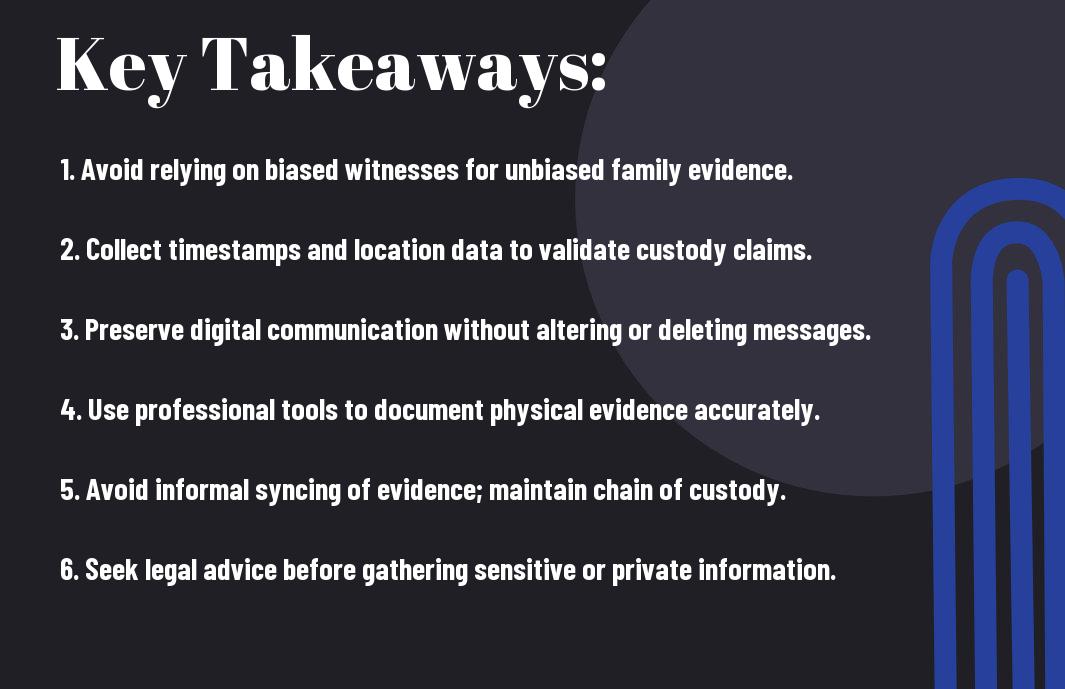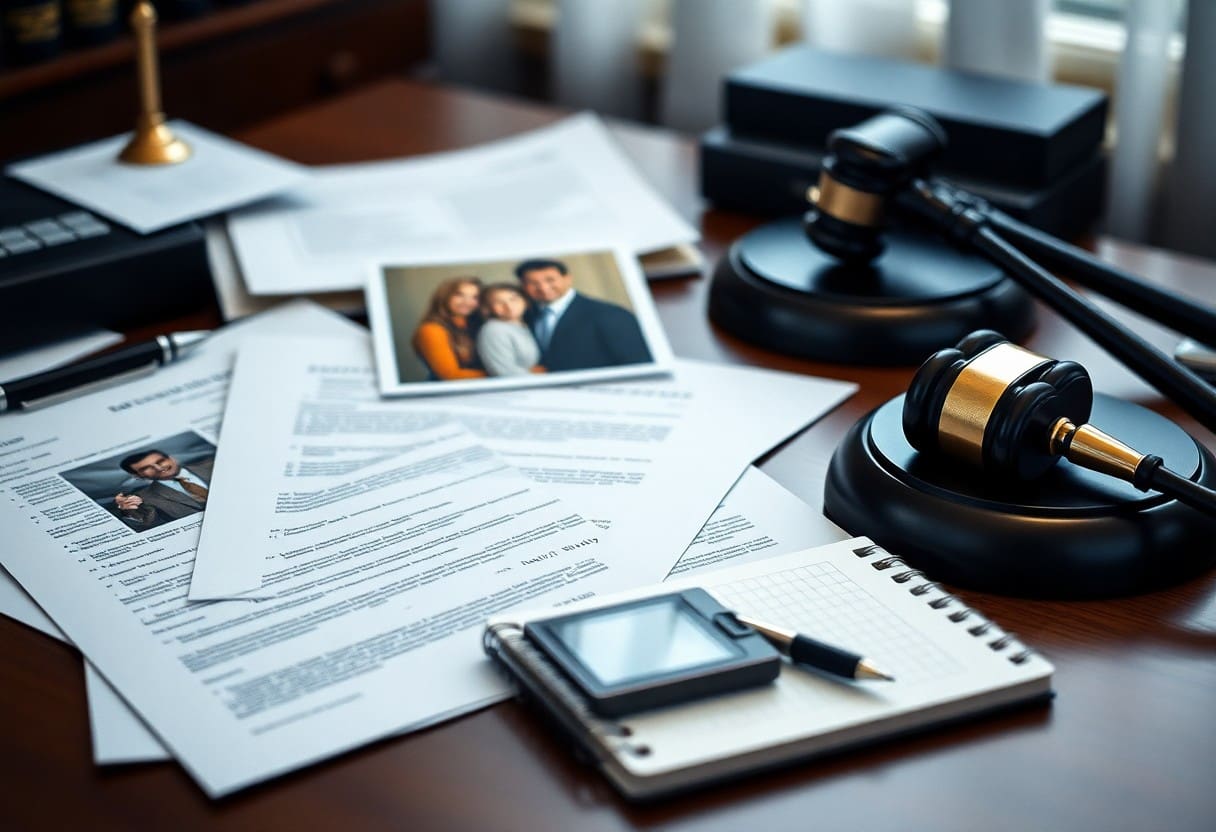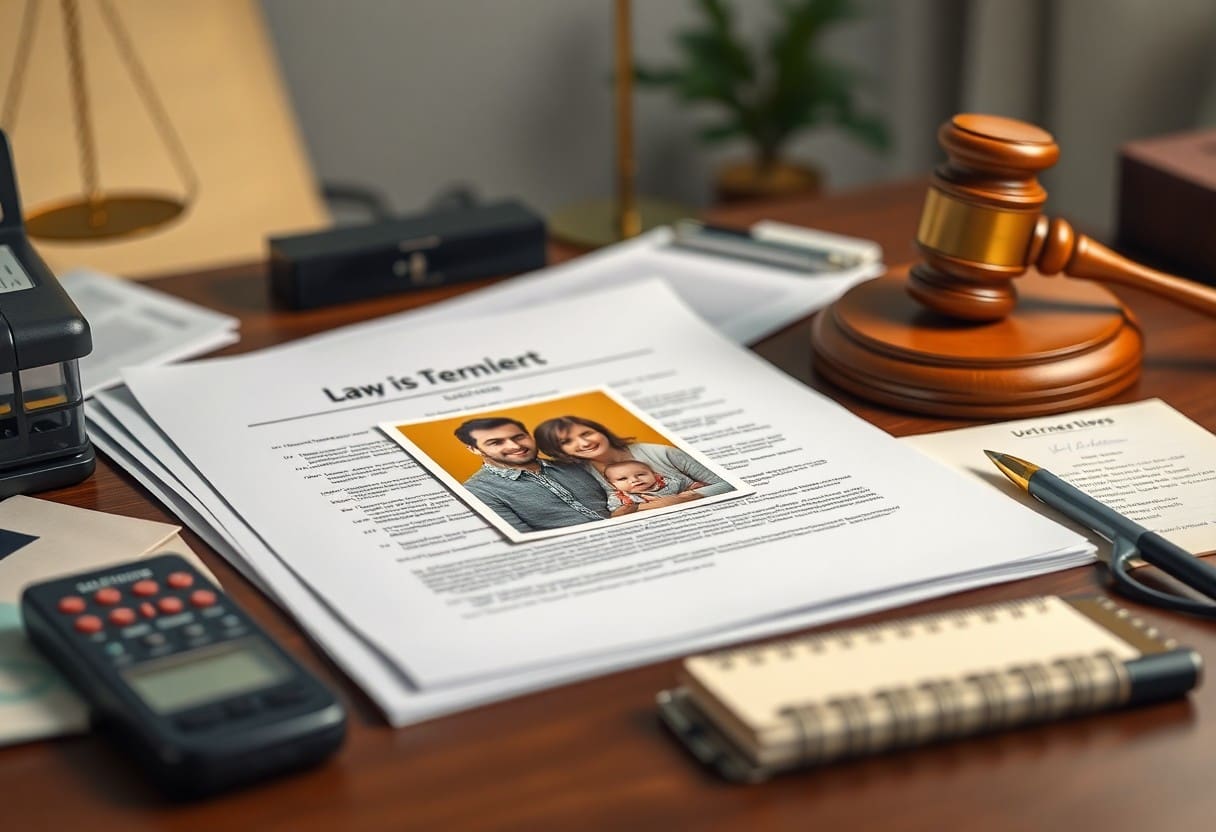It’s imperative to be aware of the common mistakes people make when collecting family and custody evidence, as these errors can significantly impact your case. Ensuring you gather information effectively can make a positive difference in protecting your rights and showcasing your commitment to your family’s well-being. This blog post will guide you through the typical pitfalls to avoid and provide practical tips, so you can approach evidence collection with confidence and clarity. Contact Digital Forensic Squad for specialized solution for properly recording custody evidence for legal filings.
Key Takeaways:
- Ensure all evidence is collected legally and ethically to avoid complications in court proceedings.
- Maintain thorough documentation of all interactions and evidence to support claims and provide clarity in custody disputes.
- Consult with a legal professional to understand the specific requirements and standards for evidence relevant to family and custody cases.
Understanding Family & Custody Evidence
A comprehensive understanding of family and custody evidence is necessary for anyone navigating legal proceedings. This type of evidence can significantly influence the outcome of custody disputes and ensures that the best interests of the child are prioritized. Your ability to present evidence effectively can determine the stability and happiness of your family’s future.
Types of Evidence
- Documentary evidence – includes court documents, text messages, and emails.
- Witness testimony – statements from family, friends, or professionals.
- Photographic evidence – pictures depicting living conditions or interactions.
- Social media evidence – online activity that can reveal character or behavior.
- Audio/Video recordings – recorded conversations or incidents.
After exploring these categories of evidence, you can systematically collect relevant information that supports your case.
| Type of Evidence | Purpose |
| Documentary Evidence | Establishes facts through written records. |
| Witness Testimony | Provides personal accounts and observations. |
| Photographic Evidence | Offers visual proof of circumstances. |
| Social Media Evidence | Reflects personal behavior and mindset. |
| Audio/Video Recordings | Captures events as they happen. |
Importance of Proper Evidence Collection
Evidence collection plays a significant role in your custody case. When you gather and present your evidence in a structured manner, it enhances your credibility and strengthens your argument. You must ensure that each piece of evidence is relevant and follows legal guidelines to avoid potential challenges in court.
Understanding the importance of proper evidence collection cannot be overstated. This process not only affects the outcome of your case but also safeguards your parental rights. Collecting evidence meticulously helps establish your involvement and commitment to your child’s well-being, presenting you as a responsible caregiver. Any lapse in collection can lead to the risk of misinterpretation or dismissal of your claims, especially if you overlook legal protocols. Always aim to gather accurate, relevant material that supports your case while maintaining a clear, organized strategy to optimize your chances in custody disputes.

Common Mistakes in Evidence Collection
While collecting evidence for family and custody battles, it’s vital to avoid common pitfalls that can hinder your case. Many individuals overlook critical details, resulting in weakened arguments. For insights into pitfalls to avoid, check out Common Mistakes in Child Custody Battles (What to Avoid).
Lack of Organization
To effectively present your evidence, you must prioritize organization. Disorganized records can lead to confusion and accidental omissions, making it easier for your opponent to discredit your claims.
Inadequate Documentation
Across many cases, the absence of thorough documentation undermines your position. You may think simple notes or text messages suffice, but these often lack the context needed to support your case fully.
It is imperative to compile records that clearly show relevant interactions, incidents, and observations. Your documentation should include dates, times, and names to establish a timeline, as well as any witnesses or supporting materials. Inadequate documentation can lead to misinterpretations or rejections of your evidence, ultimately putting your case at risk. Make sure to keep everything organized and comprehensive to protect your interests.
Emotional Bias and Its Effects
Keep in mind that emotional bias can cloud your judgment when collecting family and custody evidence. It’s vital to remain as objective as possible to create a solid case. For more insights, check out Common Mistakes to Avoid in Child Custody Cases.
Recognizing Personal Bias
Emotional bias often stems from your personal experiences and feelings regarding the situation, affecting your ability to assess evidence impartially. Acknowledging that emotions are influencing your perspective is the first step toward ensuring that your collection of evidence is fair and accurate.
Strategies to Stay Objective
Beside recognizing personal bias, you should implement strategies to maintain objectivity in your evidence collection. This may involve seeking third-party opinions and setting clear guidelines for evaluating information.
But implementing these strategies is vital to preserving the integrity of your case. Engaging a neutral third party can provide an unbiased viewpoint, and establishing a clear framework for collecting evidence allows you to focus on facts rather than feelings. Additionally, regularly reminding yourself of your goals will help keep your feelings in check, ensuring that your decision-making process is grounded in solid, factual evidence rather than strong emotions.

Legal Considerations
Unlike simply gathering evidence, understanding the legal implications surrounding your family and custody evidence collection is paramount. Any evidence you plan to use in a legal setting must comply with local laws and regulations, as improperly collected evidence can lead to its exclusion from court. Knowing these legal standards can enhance your case and provide you with a strategic advantage.
Admissibility of Evidence
By ensuring that the evidence you collect meets the standards for admissibility, you can significantly strengthen your case. Factors like relevance, reliability, and the method of collection all play critical roles. Familiarize yourself with what is permissible in your jurisdiction to avoid pitfalls.
Ethical Guidelines for Collection
Above all, adhering to ethical guidelines when collecting evidence is vital to maintaining the integrity of your case. You need to ensure that your methods are respectful and lawful, avoiding any practices that could be deemed intrusive or illegal. Following these guidelines will not only uphold your credibility but also enhance the weight of the evidence you present.
Consequently, the adherence to ethical guidelines protects both the process and the involved parties. It is important to collect evidence such as communications or photographs in a manner that respects privacy rights. Engaging in deceptive practices or breaching confidentiality can jeopardize your case and lead to potential legal consequences. Therefore, you should be transparent and seek appropriate permissions when necessary to ensure that your evidence collection is both effective and ethically sound.
Techniques for Effective Evidence Gathering
Many people overlook the importance of strategic methods in gathering evidence for family and custody cases. This process requires a thoughtful approach to ensure that the information collected is both reliable and supportive of your claims. By understanding the best techniques for effective evidence gathering, you can significantly enhance your position in any legal proceedings.
Interviewing Witnesses
Evidence from witnesses can be vital in custody cases. You should approach potential witnesses carefully, ensuring they understand the significance of their input. Ask open-ended questions to allow them to share their observations freely, and take detailed notes to accurately capture their statements. be sure to reassure them about confidentiality and the importance of their honest testimony in your situation.
Documenting Interactions
With every interaction regarding your family or custody arrangement, you should keep meticulous records. Documenting these interactions helps create a reliable timeline and evidentiary record, which can be useful in any legal context. Regularly noting dates, times, locations, and participants in your communications will strengthen your case when it matters most.
A systematic approach to documenting interactions involves creating a consistent format for your notes. Utilize a notebook, app, or digital platform to log incidents systematically. Record not only the facts but also your observations about emotional tones and responses. In addition to providing clarity in your case, it emphasizes your commitment to the well-being of your children. This habit of keeping well-documented, organized records can significantly influence the outcome of your custody dispute and highlight your proactive stance in managing your family dynamics.
Tools and Resources
Once again, having access to the right tools and resources can streamline your family and custody evidence collection. Consider utilizing reputable apps for documentation, digital storage solutions for securely saving files, and organizational tools to keep track of your evidence. Additionally, familiarizing yourself with local laws and guidelines can ensure that your collected evidence is valid and admissible in court. Arm yourself with knowledge and the right tools to enhance your case effectively.
Technology in Evidence Collection
Evidence collection has been transformed significantly through technology. Utilizing smartphones, digital cameras, and cloud storage allows you to gather, store, and share information quickly and efficiently. You can also access specialized applications designed for documenting critical incidents or tracking custody arrangements. However, it’s important to ensure that any technology you use complies with privacy laws to protect your family’s sensitive information.
Professional Help and Consultation
Evidence gathered by yourself can be beneficial, but enlisting professional help can elevate your case. With the guidance of a family law attorney or a private investigator, you can ensure that your evidence is collected legally and effectively. They can also offer strategies tailored to your unique situation, which can significantly contribute to the success of your case. Having an expert on your side can not only provide peace of mind, but it can also enhance your chances of achieving a favorable outcome.
A well-structured consultation can help you navigate the complexities of family law. Legal experts can guide you on what types of evidence are most compelling, while also advising you on local regulations around evidence collection. Moreover, their experience enables them to highlight potential pitfalls in your approach and suggest effective alternatives. Involving a professional in your evidence collection could be the key to ensuring your documentation stands up in court, protecting your rights and those of your family.
Conclusion
Drawing together the insights outlined in this guide, it’s crucial for you to be aware of the common mistakes made in collecting family and custody evidence. By being proactive in understanding these pitfalls—such as maintaining clear documentation, ensuring timely collection, and working within legal parameters—you can enhance the integrity of your evidence. Taking these steps not only bolsters your position but also assists in creating a more favorable environment for resolution in custody matters. Keep these strategies in mind as you navigate your family law journey.
Q: What are the most common mistakes people make when collecting evidence for family and custody cases?
A: One of the most common mistakes is failing to document events accurately and consistently. This can lead to incomplete or unreliable evidence. Another frequent error is overlooking the importance of collecting evidence from multiple sources, which can strengthen your case. Lastly, not understanding the legal requirements for admissible evidence can result in collecting information that may ultimately not be usable in court.
Q: How can I ensure that the evidence I collect is admissible in court?
A: To ensure that the evidence is admissible, it is important to understand the legal standards applicable in your jurisdiction. This may include following proper procedures for gathering information, such as obtaining consent when necessary and ensuring that evidence is relevant and not prejudicial. Organizing documentation chronologically and maintaining clear records of how and when the evidence was gathered can also strengthen its admissibility.

